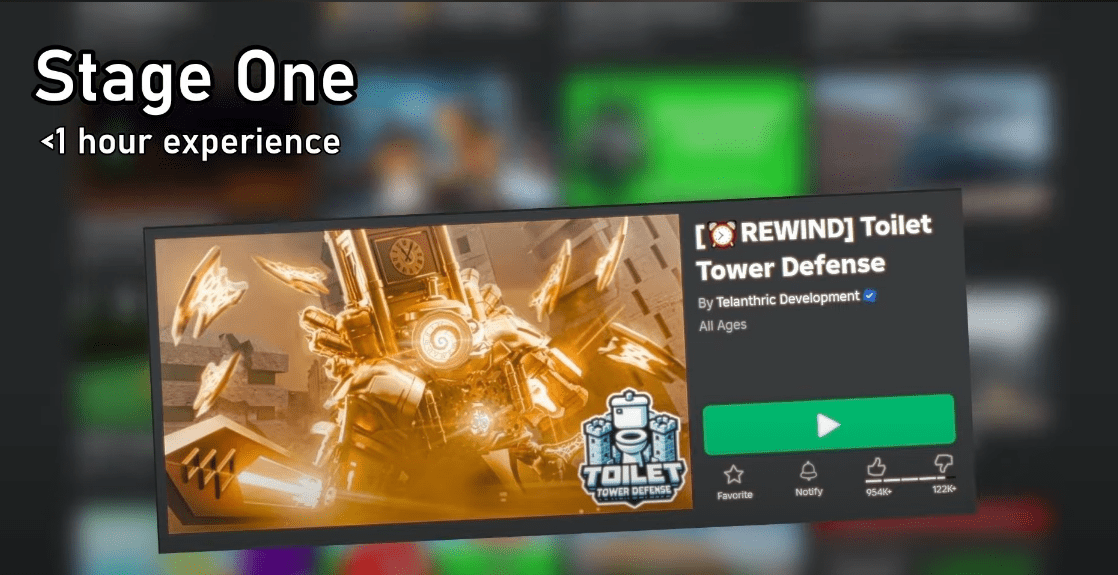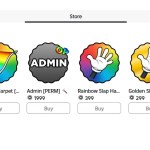So, you want to be a Roblox developer. Great. Get ready to question every decision you’ve ever made – and love it. Let’s walk through the chaotic, painful, oddly satisfying journey from clueless to cracked.
Stage One: The Spark
You’re nine years old. After playing Toilet Tower Defense or worse, Souls RNG, a thought hits you like a brick: “I could be the greatest game developer of all time.”
Naturally, you skip the baseplate like a boss and load up the Modern City template. And honestly? It looks amazing. You’re proud.
Until you realize you have no idea how to actually publish the game. Before you can figure it out, your one-hour screen time limit hits. Game over… for now.
Stage Two: The Noob Era
But you’re back. And this time? You mean business. You’re going to hit the front page – somehow.
You face two choices: make an obby or follow one of the thousands of “How to Make a Simulator” tutorials.
There’s one problem. About 1.5 million others had that same idea. You all arrive at the exact same game, just with a different name.
You think originality is key… until you see Puppet, a literal copy of Piggy, rake in $350,000.
Suddenly, copying doesn’t seem so bad. But you’ll still try to do better.
Stage Three: Learning Begins
Now it’s time to go big. Your next game idea is revolutionary – a fifth-dimensional open world with the narrative of GTA 6 and the mechanics of CS:GO.
Only issue? You don’t know how to code.
So you grind. You study basic programming, ModuleScripts, BindableFunctions, all of it. You’re in the zone.
And now that you know what you’re doing, it’s time to build your dream game. Or so you think.
Stage Four: The Pit of Despair
It hits fast. Your UI won’t change. You forgot to check for a Humanoid. Your parts aren’t anchored and now everything’s flying.
Turns out programming tutorials are like teaching someone guitar chords without ever letting them touch a guitar.
You will get stuck. You will make horrible mistakes. But you will learn.
Eventually, you start identifying what’s broken and look up solutions. You’re finally seeing how to fix what you break.
Stage Five: Slow but Steady
You’re still struggling, but you’re progressing. You make small things. Each one is a bit more complex than the last.
You join Discord servers like CrowDevs and HiddenDevs. You start watching tutorials for the concepts, not the step-by-step.
Now you’ve got something – it’s small, maybe playable for just a few minutes, but it works. That’s a win.
Stage Six: The Burnout Break
It happens to everyone. Motivation slips.
You take a break. Life moves on.
You feel like you’re done, but deep down, you know you’re not.
You’re only truly done if you never return.
Stage Seven: Gaining Proficiency
You’re back, and now you’re making things that are actually… playable. You’re not great, but you’re competent.
You’re juggling school, and yet you’re developing consistently. Mobile optimization? Still ignoring that.
You dabble in Fiverr, try making YouTube devlogs, maybe even explore VFX or animation.
Progress is slow, but you start faking it just enough to keep the ego alive. And weirdly, that works.
Stage Eight: Committed Developer
Now you’re making money – real money. Maybe not enough to retire, but definitely enough to skip a side job.
You ditch social outings in favor of debugging scripts. You’re still learning new things and making small mistakes, but people are actually playing (and paying for) your work.
It’s finally coming together.
Stage Nine: On the Verge
You’re deep in it. Full-time dev mode. You’re optimizing scripts, fixing exploits, and carefully planning launch strategies.
Everything’s polished. You’re just a few steps away from the release that could change everything.
It’s not a question of if anymore. It’s a question of when.
Stage Ten: Transcendence
You’ve made it.
Now, you spend your time helping others, flexing on the dev forum, scripting from your phone, and solving problems in your head.
You’ve learned every obscure function and property. You know CFrame inside and out.
You’ve become the developer you once looked up to. Congratulations.






